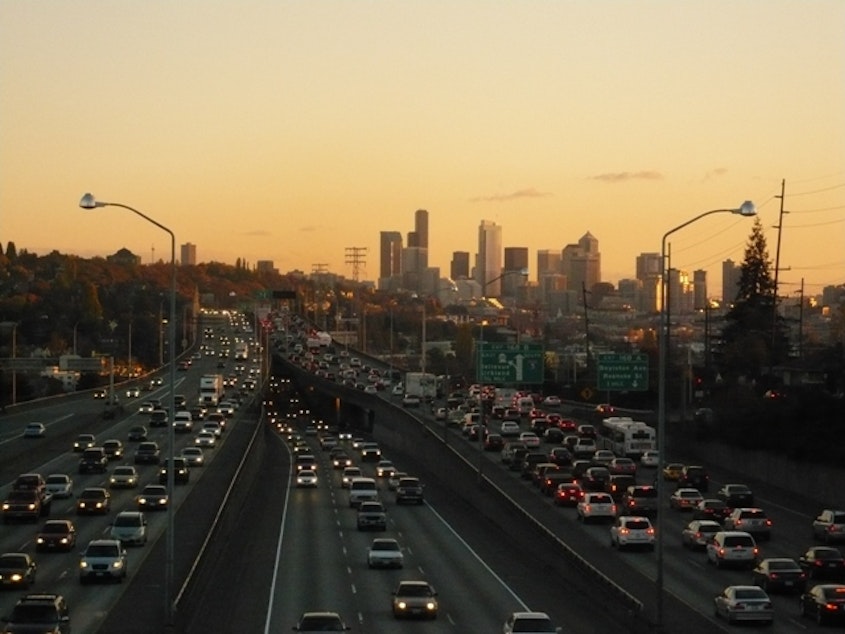Monday's tanker crash in Seattle could have been worse

As bad as the traffic was on Monday, the propane truck rollover on I-5 could have been catastrophic.
Tanker trucks are basically giant movable bombs. So says Mark Hallenbeck, director of the Washington State Transportation Center, a think tank at the University of Washington.
"You just don’t mess with tanker trucks, you do everything by the book. Very carefully, and for the most part pretty darn slowly because to screw up is really bad,” he said.
In December, a fuel truck overturned outside Washington, D.C., causing a 55-car crash that killed two people.
On Monday, Seattle police evacuated people for a quarter mile around the rollover on southbound I-5. The fire department deployed nearly two dozen units from around 10 a.m., when the tanker truck rolled over, until the accident was cleared after 6 p.m.
Sponsored
Traffic backed up for hours. Hallenbeck says it shows the region’s highway system isn’t resilient when access to I-5 is cut off.
"I-5 is such an important part of the facility, we don’t have a good way to recover from that without a whole lot of notice," he said.
The truck belonged to Ferrellgas, a national propane company that operates over 500 trucks across the country. According to U.S. Department of Transportation records, before Monday’s rollover, the company had been involved in 87 crashes in the last two years. Three released hazardous materials. In all, 32 people were injured.
No gas leaked on Monday, but three people were hurt. The tanker truck that rolled over was not involved in those prior crashes. According to federal records it was inspected twice last year and no problems were found.

